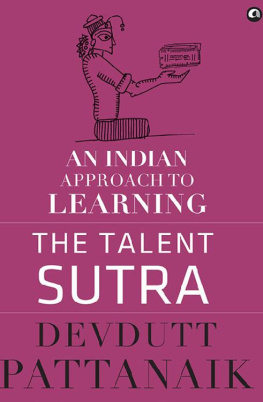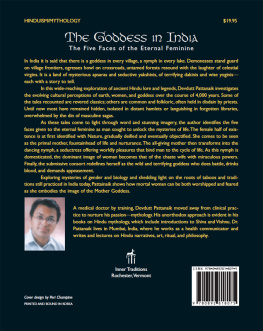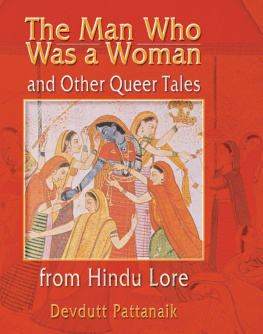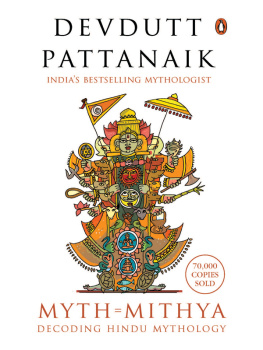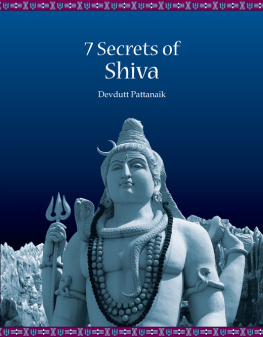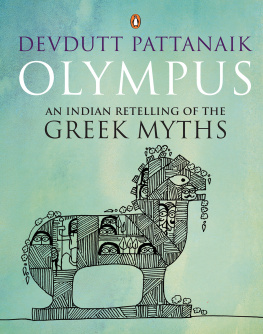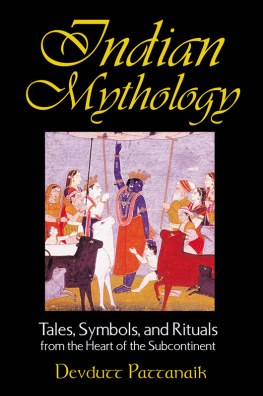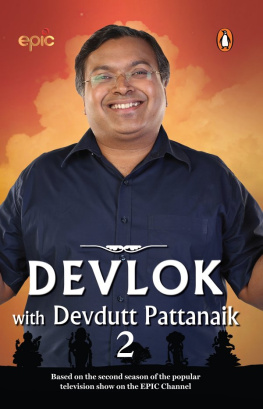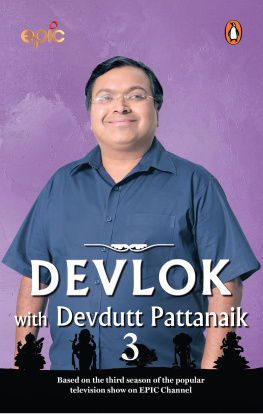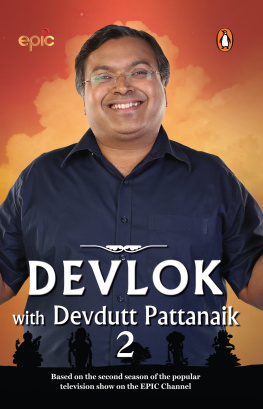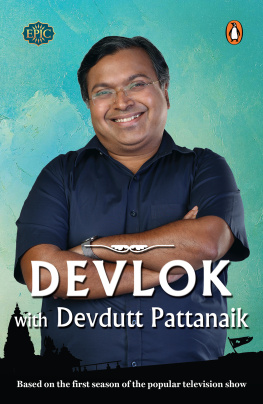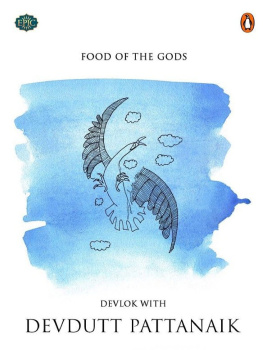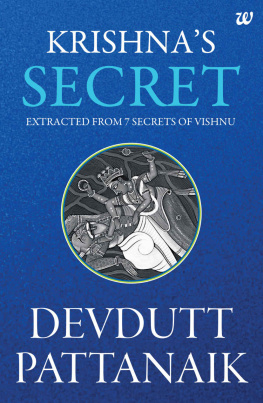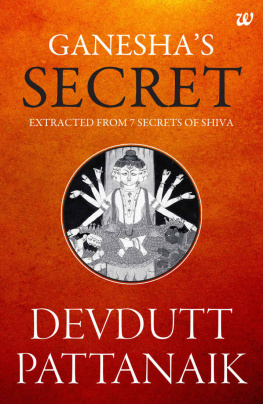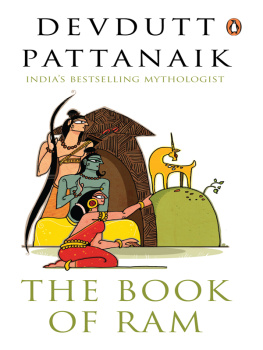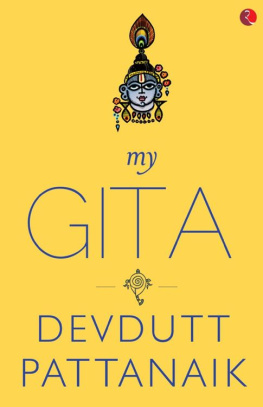Devdutt Pattanaik - How we can be Kings even without Kingdoms
Here you can read online Devdutt Pattanaik - How we can be Kings even without Kingdoms full text of the book (entire story) in english for free. Download pdf and epub, get meaning, cover and reviews about this ebook. year: 2016, genre: Detective and thriller. Description of the work, (preface) as well as reviews are available. Best literature library LitArk.com created for fans of good reading and offers a wide selection of genres:
Romance novel
Science fiction
Adventure
Detective
Science
History
Home and family
Prose
Art
Politics
Computer
Non-fiction
Religion
Business
Children
Humor
Choose a favorite category and find really read worthwhile books. Enjoy immersion in the world of imagination, feel the emotions of the characters or learn something new for yourself, make an fascinating discovery.

- Book:How we can be Kings even without Kingdoms
- Author:
- Genre:
- Year:2016
- Rating:4 / 5
- Favourites:Add to favourites
- Your mark:
- 80
- 1
- 2
- 3
- 4
- 5
How we can be Kings even without Kingdoms: summary, description and annotation
We offer to read an annotation, description, summary or preface (depends on what the author of the book "How we can be Kings even without Kingdoms" wrote himself). If you haven't found the necessary information about the book — write in the comments, we will try to find it.
Devdutt Pattanaik: author's other books
Who wrote How we can be Kings even without Kingdoms? Find out the surname, the name of the author of the book and a list of all author's works by series.
How we can be Kings even without Kingdoms — read online for free the complete book (whole text) full work
Below is the text of the book, divided by pages. System saving the place of the last page read, allows you to conveniently read the book "How we can be Kings even without Kingdoms" online for free, without having to search again every time where you left off. Put a bookmark, and you can go to the page where you finished reading at any time.
Font size:
Interval:
Bookmark:
About the Management Sutras
Devdutt Pattanaik is an acclaimed business thinker and strategist. His profound management sutras are derived from his bestselling books on business and management. They show how individuals can realize their potential, create wealth and achieve lasting success by following uniquely Indian principles (based on Hindu, Jain and Buddhist mythology) of goal setting, strategic thinking and decision-making.
A glossary at the back of the book provides explanations for specialized or unfamiliar words and terms used in the narrative.
HOW WE CAN
BE KINGS EVEN
WITHOUT KINGDOMS


ALEPH BOOK COMPANY
An independent publishing firm
promoted by Rupa Publications India
First published in India in 2016
by Aleph Book Company
7/16 Ansari Road, Daryaganj
New Delhi 110 002
Copyright Devdutt Pattanaik 2016
The author has asserted his moral rights.
All rights reserved.
The views and opinions expressed in this book are the authors own and the facts are as reported by him which have been verified to the extent possible, and the publishers are not in any way liable for the same.
No part of this publication may be reproduced, transmitted, or stored in a retrieval system, in any form or by any means, without permission in writing from Aleph Book Company.
ISBN: 978-93-83064-XX-X
1 3 5 7 9 10 8 6 4 2
For sale in the Indian subcontinent only
This book is sold subject to the condition that it shall not, by way of trade or otherwise, be lent, resold, hired out, or otherwise circulated without the publishers prior consent in any form of binding or cover other than that in which it is published.
CONTENTS
We see things not thoughts
W hen they decided to go to war, both the Kauravs and the Pandavs approached Krishna for help. I love you both equally so will divide myself into two halves. Take whichever half you want.
Krishna offered one side the Narayani Sena, his fully-armed army. To the other, he offered Narayan, that is, himself unarmed. The Kauravs chose Narayani Sena. The Pandavs chose Narayan. The Kauravs chose Krishnas resources that are saguna: visible, tangible and measurable while the Pandavs chose Krishnas potential or nirguna: invisible, intangible and not measurable.
Narayan is who-we-are. Narayani is what-we-have. Narayan is expressed through Narayani. Most people rely on measuring Narayani to determine what is Narayan.
That is how the value of a person is determined by his possessions: his university degrees, income, bank balance, clothes, car, and so on.
Possessions are resources. They are tangible and measurable. Potential is not tangible and measurable. In the world of management where measurement matters, Narayan is ignored and Narayani preferred. We check what a person brings to the table during interviews. We value a customers wallet, more than the customer. A employee is valued for his skills only. His vision, his fears, his feelings do not matter. The latter cannot be measured. Their value cannot be determined. Nobody knows how to leverage who we are. But we have many ways of leveraging what-we-have. In other words, we welcome Kauravs into the organization, not Pandavs, which does not bode well for anyone.
Every leader wonders if the person speaking to him speaks to his person or the authority he wields by virtue of his position. The king wonders if he matters or his sword: this is the curse of kingship.

To motivate his team, Bipin asked his guru to give them a speech. The guru quoted verses from the Bhagavad Gita about staying calm in success and in failure. While it felt good to hear the discourse, one of Bipins sales managers was heard commenting, I may be calm but my failure will certainly get Bipin agitated. He does not care for us. He only cares for our performance. We are a performance-driven organization after all. The sales manager knew that if his sales numbers dipped, he could bid his bonus goodbye. The company only cared for the Narayani, not the Narayan.


Things help us position ourselves
W hen Hanuman, a monkey, entered Lanka and identified himself as Rams messenger and asked for a seat as protocol demanded, he was spurned by the rakshasa-king, Ravan, who insulted him by denying him one. Hanuman retaliated by announcing that he would create a seat for himself: he extended his tail, coiled it around and created a seat higher than Ravans throne. Instead of being amused or impressed, Ravan was infuriated. His power was threatened. In a rage, he ordered that Hanumans tail be set aflame.
The story reveals how a thing (a seat) is used to communicate a thought (pecking order). Hanuman does not care for power or for thrones but he realizes things mean a lot to Ravan. By the dramatic use of his tail, he breaches the fortress of Ravans mind and shatters his mental image in an instant.
What is interesting is that Hanuman does not need an external thing to position himself; he expands what he already hashis tail. In other words, he finds strength within and does not need the help of an object or a salutation. He has enough Shakti to compensate for the Durga that Ravan refuses to give him.
We constantly use material things to position ourselves: our cabins, our houses, our cars, our mobile phones, and so on. When these are taken away from us, or damaged, we feel hurt. When our possessions are damaged, when our car gets scratched, or our watch gets stolen, or our seat is given to someone else, our social body gets damaged and this causes pain to the mental body; even though the physical body is perfectly fine.


When it was time to buy a new mobile phone, Pervez had a simple rule. He checked what models his clients and his bosses were using. He then bought an inferior model. He did not want to intimidate any of them or make them feel insecure. In fact, he wanted them to criticize his choice and mock him for buying a poor-quality phone. I want them to put me down. I want them to feel superior. It helps me in my relationship with them. Pervez has understood the power of using things to generate Durga.

Things are surrogate markers of our value
I ndra calls Vishwakarma, his architect, and orders him to build a palace worthy of his stature. Vishwakarma builds a palace of gold but Indra feels it is not good enough. So Vishwakarma builds him a palace of diamonds; Indra is not satisfied with that either. So Vishwakarma builds him a palace using that most elusive of elements, ether; even this does not please Indra.
Next pageFont size:
Interval:
Bookmark:
Similar books «How we can be Kings even without Kingdoms»
Look at similar books to How we can be Kings even without Kingdoms. We have selected literature similar in name and meaning in the hope of providing readers with more options to find new, interesting, not yet read works.
Discussion, reviews of the book How we can be Kings even without Kingdoms and just readers' own opinions. Leave your comments, write what you think about the work, its meaning or the main characters. Specify what exactly you liked and what you didn't like, and why you think so.

